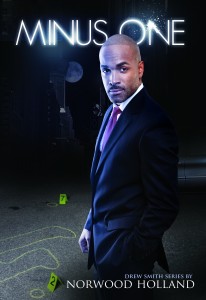Writing The Book Proposal
January 27, 2012
A book proposal is multi-purpose but more necessary for non-fiction while an outline may adequately serve the fiction writer’s planning purpose. The proposal keeps the writer focused on the end game i.e., selling books. The greatest benefit is allowing the author to shop it around without a final manuscript. It eliminates the need to write the entire manuscript before you make the sale; indeed, most professional writers, and most beginners as well, use a book proposal to close the deal. Writing a book proposal is often an eye opening experience allowing your creativity to expand and explore possibilities in structuring and organizing the book.
You must submit a book proposal (usually via a literary agent) to procure a book deal. The reason is that the publisher needs to know if investing the money in publishing your book will pay off. Your book proposal must make a compelling case that this book, written by you, is needed in the marketplace.
A good reference is literary agent Michael Larsen‘s How To Write A Book Proposal. He sets out the hot buttons that will excite editors and agents like good writing, the size of the market you plan to penetrate and your ability to promote the book. Like a road map the proposal components serve as milestones along the journey to your publishing destination. It’s a great way to gel you thinking on the marketing viability of your book. Remember you want to write a book people will want to read, and your book proposal is going to show that editor/agent how you plan to do it.
How will it sell? You’ll have to pitch your proposal and it should have a curiosity factor or what Larsen calls “hot buttons” that pique an agents curiosity. For the nonfiction book the proposal helps define the market and the targeted reader, likewise a fiction outline should address the genre and the targeted reader. Every genre has certain specific rules for example a thriller cannot be a thriller without gripping suspense. Knowing the rules and determining market and genre factors are indispensable considerations in planning your book.
The non-fiction author should have a platform or at least begin to build one. A platform speaks to an author’s credentials and what qualifies him or her to speak with any kind of authority on the topic. Literary Agent Rachelle Gardner in her 10 Tidbits About Author Platform suggests a platform is only necessary if you want to sell a lot of books, and not necessary if your primary goal is to write rather than sell. I agree particularly when it comes to the fiction author where an author’s qualifications are more likely measured by the quality of the writer’s writing. Non-fiction authors, be aware the platform is a primary consideration for publishers, and should be primary for you even if you’re considering self-publishing.
Platform building can include: building a speaking career and speaking to larger and larger audiences; having regular or ongoing visibility in the traditional media (radio, TV, magazines, newspapers); having a highly visible position in a large organization, for example, being a pastor of a 5,000 member church or the CEO of a 1,000-employee company; or building a strong online identity with blogging and social networking.
Author William Cain explains the book proposal components with this table of contents example.
- Overview
- Marketing
- Promotion
- Competing Books
- About the Author
- List of Chapters
- Chapter-by-Chapter Summaries
- Sample Chapters
So you say you want to write a book, for non-fiction start with a proposal. If its fiction learn the elements of your genre and conform your outline thereto. Every genre has common specific elements be it Literary, Mystery, Thriller, Romance, Science Fiction, Fantasy and all other contemporary popular genres. In setting out on your journey to write that book let the foregoing be your food for thought.
Next: Self Publisher: To Be or Not To Be
A Review of Reasonable Facsimile by Chris Shella
January 19, 2012
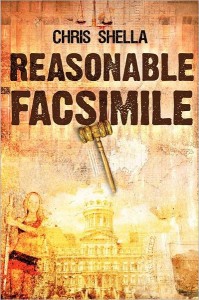 Chris Shella’s Reasonable Facsimile is a tale of woe and redemption. Jasper Davis, a.k.a. J.D.–or Jack Daniels nicknamed in honor of his favored libation– is a dynamic skilled defense attorney with lots of baggage battling demons alcohol and sex. J.D. is as dirty as the clients he represents seemingly familiar with all low life Baltimore. When court is in recess other lawyers bone up on their cases while Jack Daniels is boning up on lap dances. One wonders how he even manages to function given the excesses of his hedonistic lifestyle, but it serves to fill the void in his life, his absent wife and son. Infidelity caused his wife a college professor to kick him to the curb. There he flounders in the gutter for 7 years. He pines over the past longing to return to the days before daily habits overtook his desire to be a father and husband.
Chris Shella’s Reasonable Facsimile is a tale of woe and redemption. Jasper Davis, a.k.a. J.D.–or Jack Daniels nicknamed in honor of his favored libation– is a dynamic skilled defense attorney with lots of baggage battling demons alcohol and sex. J.D. is as dirty as the clients he represents seemingly familiar with all low life Baltimore. When court is in recess other lawyers bone up on their cases while Jack Daniels is boning up on lap dances. One wonders how he even manages to function given the excesses of his hedonistic lifestyle, but it serves to fill the void in his life, his absent wife and son. Infidelity caused his wife a college professor to kick him to the curb. There he flounders in the gutter for 7 years. He pines over the past longing to return to the days before daily habits overtook his desire to be a father and husband.
J.D. takes on a major violent first-degree murder case and finds himself challenged by the judge, the prosecutor, the witnesses, his addictions, and a sinking reputation all of which get the best of him. But a turning point comes when federal agents suspect he conspired with his client to kill the key witness, a government informant. J.D. has a come to Jesus conversion realizing its life or death and the only way to save his self is to get back home with his wife and child. To complicate it all Carmen an attorney from his past appears and wants to take on the task of salvaging his life.
Reasonable Facsimile is at times humorous and shocking. The characters seem real and familiar. Chris Shella makes effective use of the stream of consciousness technique taking the reader on a tour witnessing through Jasper’s eyes the drunken binges and hangovers, the strip joints, and courtroom drama rich with the minutia of lawyering and legal procedures.
Reasonable Facsimile is a great read despite some editorial weakness. I was disappointed expecting a legal thriller as one reviewer mistakenly touted. That sub-genre usually features an attorney or judge as the hero, caught up in a gripping courtroom drama with numerous plot twists. A legal thriller it is not, but rather a story of the redemptive self transforming suffering into a positive emotional state moving from pain and peril to redemption. Despicable Jasper Davis is transformed from the ignoble to the noble and admirable. With structural flaws Reasonable Facsimile is not a page turner. Nevertheless it is a fulfilling read. I hope for more from Attorney Shella and with the right developmental editing he should have no problem knocking a real legal thriller out of the park.
Every Writer Needs An Editor: It’s Necessary
January 13, 2012
Rec ently I was asked to review two books in final published format that clearly had not passed under an editor’s eyes. My initial reaction was embarrassment for the author while each may believe in their books–not to say the writing was bad. In fact in both books the writing was quite good, but poor plot and character development, typos, misspelled words, and misplaced commas were huge distractions taking away from the reading experience diminishing the book’s value. Why is it that some authors publish their work without an editor’s assistance? Very few if any published books are error free, but rest assured those that have been properly edited are usually free of obvious errors. This has been the dilemma of self publishing and reason why major newspapers refuse to review self published books regarding them as of poor quality and mere vanity publications. Why some authors skip this necessary step is beyond me, but I offer this advice, if you can’t afford an editor then you can’t afford to publish.
ently I was asked to review two books in final published format that clearly had not passed under an editor’s eyes. My initial reaction was embarrassment for the author while each may believe in their books–not to say the writing was bad. In fact in both books the writing was quite good, but poor plot and character development, typos, misspelled words, and misplaced commas were huge distractions taking away from the reading experience diminishing the book’s value. Why is it that some authors publish their work without an editor’s assistance? Very few if any published books are error free, but rest assured those that have been properly edited are usually free of obvious errors. This has been the dilemma of self publishing and reason why major newspapers refuse to review self published books regarding them as of poor quality and mere vanity publications. Why some authors skip this necessary step is beyond me, but I offer this advice, if you can’t afford an editor then you can’t afford to publish.
With the growth of the internet, self publishing has taken off giving the publishing cartel, the “Big Six”, (Hachette Book Group, Harper Collins, Macmillan, Penguin Group, Random House, and Simon & Schuster) a run for the book buyer’s money. These publishers hire people who do nothing but editing and regard this step as the most important in the publishing process. For good reason, good writing is so much more than just grammar and punctuation. Many authors spend years in apprenticeship mastering the skills. I’ve heard novelists boast of having no formal training and I don’t believe formal training is required but there are certain fundamental rules that must be mastered. Concepts like show don’t tell, point of view, characterization, exposition and dialogue mechanics all have rules which serve a purpose enhancing the reading experience. If you’re a writer and you don’t recognize these terms you better ask somebody. Better yet. study the craft, immerse yourself in your chosen genre. There is a plethora of books and how to sources online and in your local library. Join a writing group and attend writing conferences. You’ll be amazed with what you take away.
I wrote my first book 10 years ago and could have wall papered a room with the rejection letters. It wasn’t easy, but I didn’t give up, and began to study the genre I aspired to publish in, I subscribed to Writers’ Digest and The Writer’s Magazine which would publish one of my articles years later. I studied, I learned, I conquered. Indeed it took time and money, neither of which was prohibitive. I saw it as an investment. I continued to write but hired professional editors who guided me to next level. The rejection letters to my queries didn’t stop but something changed. Publishers began to requests the entire manuscripts rather than first 30 pages. I managed to get more than just a foot in the door but a manuscript on the desk, a benefit of attending pitch conferences. That extra added criticism and guidance helped my work shine, and you want your work to shine and to improve your chances its necessary to invest in your writing.
I learned attending writing conferences the value of blogs and social media, and to the aspiring novelist, do yourself a favor and avoid a future of having to make excuses, explanations and playing the blame game. There’s a reason professionals and academia rely on peer review. Don’t destroy your future as a writer before you even begin, invest the time and money. It’s necessary. You’re putting your name out there, and if you want readers to keep coming back give them reason to.
A Review of Strangers in the Streets by Mitch Credle
December 29, 2011
Credle takes the writer’s adage “write what you know” to heart, leading the reader on a journey into the heads and hearts of vulnerable young men born into an environment where they are groomed and nurtured in the street life. Love plays a pivotal role and a redeeming force in both their lives. A determined father succeeds in removing Smokey from the ghetto life while Black hardened by time served returns to his uncle’s drug dealing enterprise. He resumes the street life killing and robbing until he falls in love with April, a good woman. Love gives Black’s life purpose but at this point it’s too late. The master of his fate not even April’s nor Smokey’s brotherly love can save him.
Strangers in the Streets is a good read despite eschewing the standard dialog format it nevertheless flows. Few writers are able to capture the depth, breadth and reality of street life as experienced by the young African American male with its distinct language and code of conduct. Mitch Credle does it well because he’s been there growing up on the streets of D.C. and rising up to a Homicide Detective with the Metropolitan Police Department.
Strangers in the Streets is a suspenseful read with actual empathy for the villain Ricky Walker otherwise known as Black. The book leaves the reader a sense of hope. Indeed, there is hope for the young men imprisoned and those queuing up to take their place. That hope can only be manifested by changing the environmental forces that shape their lives.
It is said, men are the products of their environments, some rise above it, many do not. It’s certain by changing their bleak environment we can raise the hopes of many.
Zora Neale Hurston and Langston Hughes: A Woman Scorned
December 22, 2011
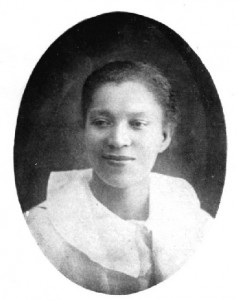 Zora Neale Hurston was in Eatonsville while Fannie Hurst was in Manhattan writing Imitation of Life suggesting there was little if any communication on the project. However that didn’t prevent Sterling Brown and Langston Hughes from accusing Zora of providing the source material.
Zora Neale Hurston was in Eatonsville while Fannie Hurst was in Manhattan writing Imitation of Life suggesting there was little if any communication on the project. However that didn’t prevent Sterling Brown and Langston Hughes from accusing Zora of providing the source material. 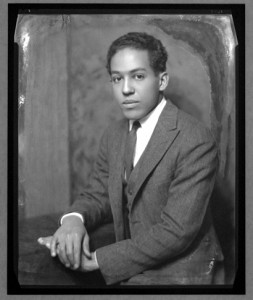 In a note to Fannie, Zora claims that as mistaken as both were she didn’t deny it and took the accusation as the highest of compliments. Sterling Brown wrote a scathing review in Opportunity magazine while the work inspired Langston Hughes spoof Limitation of Life.
In a note to Fannie, Zora claims that as mistaken as both were she didn’t deny it and took the accusation as the highest of compliments. Sterling Brown wrote a scathing review in Opportunity magazine while the work inspired Langston Hughes spoof Limitation of Life.
Langston Hughes and Zora Neale Hurston’s friendship lasted five years and ended in jealousy and perhaps an unrequited love. In the Spring of 1927 Langston was invited to read his poems at Fisk University’s Commencement exercises. From there he planned to do another reading in Texas but the Great Mississippi Flood cancelled those plans. A change took him South where he ran into Zora in New Orleans. She was touring the South in her own car, collecting materials for research. Together they spent several weeks driving through the rural South collecting folk songs and stories.
They returned to Harlem and Hughes introduced Hurston to his patron the “Park Avenue Godmother” Charlotte Mason. Under Charlotte Mason’s sponsorship they began to collaborate on a play Mule Bone. Mason hired a third Harlem Renaissance figure Louise Thompson to do the typing for $150 a month. Zora found Louise and Langston growing a little too cozy. Then one can only surmise by some mischief concocted by Zora, Louise was suddenly fired. Hughes wanted Louise to continue typing and offered to share author credits. Zora opposed the idea and with only two acts completed Hurston packed up and took off on another tour taking the notes and manuscript.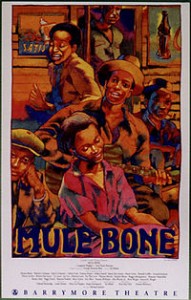
Despite his great affection for the Godmother Hughes was feeling controlled, beholden and with his creativity stifled their relationship deteriorated and not long after she cut him off. The financial and emotional toll stressed him into a psychosomatic illness. He returned to his mother’s home in Cleveland to recuperate. As fate would have it he discovered Hurston had copyrighted the play and was in the process of negotiating the rights with the Jelliffe’s of the Gilpin Players, the Black theater company long associated with Cleveland’s Karamu House.
Things blew up and Zora traveled to Cleveland supposedly to smooth things out admitting Langston was a co-author. But when she arrived at Langston’s home for a meeting with all the parties she discovered Louise Thompson was in town. A big blow out ensued with Zora acting out. In her crazy way she did an about face disavowed Langston’s authorship baffling the Jelliffes and disrespecting Langston mother who he had to physically restrain. He was also recovering from a tonsillectomy and barely able to talk.
The friendship never mended. Zora would later confess to Arna Bontemps how sorry she was for her behavior admitting her jealousy of Louise Thompson. A romantic entanglement is not hard to imagine. Hurston understandably was in love with Hughes. They were after all in their twenties and he was strikingly good looking. Zora didn’t mention Langston in her memoirs and he politely referenced her as Miss Hurston in his. The play would not be performed until 1991 on Broadway to negative reviews. Critics all in agreement expressed regret the play was never finished. To use Langston Hughes’ words: Girls are funny creatures.

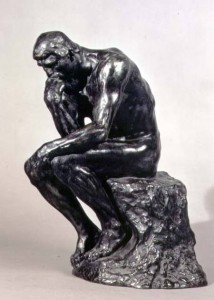
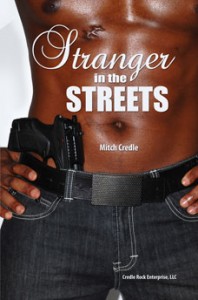 DC Homicide Detective Mitch Credle’s novel Strangers in the Street is one gritty real read, a journey into reality chocked with thugs, gangsters and rogue cops. From boys to men we follow Smokey and Black, a.k.a. Daniel Slade and Ricky Walker, one thoughtful and deliberative, the other impetuous and reckless. They bond as adolescents growing up in the rough section of Clifton Terrace spending their days hanging out, selling drugs, and committing street robberies. A crap game takes a turn for the worse and gunplay decides their future. Black takes a murder rap for Smokey and serves a juvenile life sentence. While Black is locked up until he’s twenty one, Smokey moves to the suburbs growing up in a relatively charmed existence. One becomes a hardened killer, the other a cop and years later their paths reunite and reignites their tender mutual affection. Theirs is a friendship illustrating how our past forever remains with us as constant as the loves of our lives.
DC Homicide Detective Mitch Credle’s novel Strangers in the Street is one gritty real read, a journey into reality chocked with thugs, gangsters and rogue cops. From boys to men we follow Smokey and Black, a.k.a. Daniel Slade and Ricky Walker, one thoughtful and deliberative, the other impetuous and reckless. They bond as adolescents growing up in the rough section of Clifton Terrace spending their days hanging out, selling drugs, and committing street robberies. A crap game takes a turn for the worse and gunplay decides their future. Black takes a murder rap for Smokey and serves a juvenile life sentence. While Black is locked up until he’s twenty one, Smokey moves to the suburbs growing up in a relatively charmed existence. One becomes a hardened killer, the other a cop and years later their paths reunite and reignites their tender mutual affection. Theirs is a friendship illustrating how our past forever remains with us as constant as the loves of our lives.

